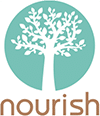Nutrition
4 Nutrients for Better Skin Health
The skin is the largest organ of the body, and one of its main roles is to act as a barrier to the external environment. There are a huge variety of conditions that may impact the skin including acne, psoriasis, eczema, rosacea, hives, and contact dermatitis, all of which can be extremely frustrating to treat and manage.
For optimal skin health, we need to take a closer look at the food that we are consuming. There is no point in spending hundreds of dollars on skincare, if you aren’t helping your skin from the inside out! What you eat plays a big role in how your skin looks and feels, and new research is proving that a predominantly plant based diet is the best diet for optimal skin health, as the skin and the gut are closely linked.
Now let’s look at 4 important nutrients to include in your diet to achieve healthy, glowing skin.
1. Vitamin C
First up is Vitamin C which is found in large amounts within the layers of the skin, therefore it is no surprise that it plays an important role in skin health. Vitamin C treatments are the latest trend in skincare regimes, believed to brighten the skin and reduce pigmentation. However, Vitamin C consumption is just as important as external treatments, if not more so as it can work its magic throughout the entire body.
The two most important roles Vitamin C has in relation to skin is its role in collagen formation and antioxidant protection. Collagen is a structural protein found in connective tissue, bones, and the skin, and Vitamin C happens to be a co-factor in its production in the body.
Vitamin C is also a potent antioxidant, with the role of preventing or slowing the damage of free radicals in the body and reducing oxidative stress. This reduces inflammation in the body, including on the skin in the form of an eczema breakout or acne flare ups.
Food sources of Vitamin C are mainly found in fruits and vegetables such as citrus fruits, berries, kiwi fruit, broccoli, and capsicum. Consuming these foods will make it easy for you to reach the recommended daily intake of Vitamin C.

2. Zinc
The next nutrient of focus is zinc, which is crucial for many roles in the body including wound healing, inflammation, and hormone balance. People often forget that acne and scars are a wound that requires efficient healing, hence why zinc may be important for those suffering with these.
Interestingly, a recent study that looked at patients’ zinc levels and acne prevalence found that those with acne had low levels of zinc compared to the control group. Additionally, those who began zinc supplementation had a significant improvement in inflammatory pimple count compared to those who were not.
Hormonal fluctuations can also cause flare ups of acne in males and females. This is often a cause of too many androgens (male sex hormones), which zinc supplementation may assist with as it can regulate these, as well as kill bacteria and slow the production of sebum and keratin.
Food sources of zinc include oysters, nuts and seeds, and animal products. People with zinc deficiency may require a short course of zinc supplementation to elevate their levels back within range.
3. Omega 3
Omega 3 fatty acids are essential nutrients that the body cannot make, so we must rely on food sources to meet daily intake. Dietary sources include fatty fish (salmon, mackerel), shellfish, flaxseeds, hemp seeds, walnuts and avocado.
Omega 3’s are crucial for a range of functions, in particular their anti-inflammatory properties. Inflammation in the body can trigger flare ups of numerous skin conditions, such as acne, eczema and psoriasis, so down regulating inflammatory responses could reduce the incidence or severity of these conditions.
Research also shows that high quantities of omega 3 fatty acids in the form of oral supplements, topical applications or IV injections can have benefits for general skin health. For example, it may improve skin barrier function, inhibit UV-induced inflammation of the skin, reduce hyper-pigmentation, relieve dry skin conditions, and accelerate wound healing!

4. Probiotics
This one isn’t technically a nutrient, but it’s on the list as there is some promising research to suggest certain probiotic strains may help with certain skin conditions such as acne and eczema.
Probiotics are beneficial microorganisms that live throughout our digestive tract, and also on the surface of the skin. There are thousands of different species of probiotics, and some of these can be found in foods such as kimchi, sauerkraut, yoghurt, kefir and miso. The health of the skin is thought to be closely linked to the health of the gut, and therefore probiotics may play a larger role in treating skin conditions than was initially thought.
Research into probiotics and skin conditions is still emerging, however there is evidence to suggest that probiotic strains Lactobacillus rhamnosus, Lactobacillus acidophilus, Lactobacillus paracasei and Bifidobacterium lactus may be effective in the treatment of eczema, and lead to a decreased use of topical medications.
For the treatment of acne, there is also new research to show that Lactobacillus salivarius, Lactobacillus casei and Bifidobacterium breve can reduce inflammation, skin redness and impact the overgrowth of acne causing bacteria via the gut.

The Bottom Line
What we eat has a large impact on our overall skin health. Opting for a wide variety of whole foods and limiting processed foods where possible will help give your skin the nourishment it needs. Sometimes supplementation of particular nutrients may be required, and this is something that a Nutritionist can help with for an individualised approach based on your needs.



